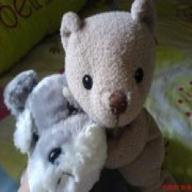例如 : 蛙災、蝗蟲
.................
仲有乜野呀?!~
聖經講既十災邊十災?
2007-04-07 2:21 am
回答 (4)
2007-04-07 6:03 pm
俾啲英文版本作参考:--
In the first plague, the water of the river and of all the canals and pools of Egypt was turned to blood and became corrupted, so that the Egyptians could not drink it, and even the fishes died (Exodus 7:14-25). Commentators are divided as to whether the water was really changed into blood, or whether only a phenomenon was produced similar to the red discoloration of the Nile during its annual rise, which gave the water the appearance of blood. The latter view is now commonly accepted. It should be noted, however, that the red discoloration is not usual in Lower Egypt, and that, when so discoloured, the water is not unfit to drink, though it is during the first, or green, stage of the rise. Besides, the change did not take place during the inundation (cf. Exodus 7:15).
The second plague came seven days later. Aaron stretched his hand upon the waters and there appeared an immense number of frogs, which covered the land and penetrated into the land to the great discomfort of the inhabitants. Pharao now promised to let the Israelites go to sacrifice in the desert if the frogs were removed, but broke his promise when this was done.
The third plague consisted of swarms of gnats which tormented man and beast. The magicians who in some way had imitated the first two wonders could not imitate this, and were forced to exclaim "This is the finger of God".
The fourth was a pest of flies. Pharao now agreed to allow the Israelites a three days' journey into the desert, but when at the prayer of Moses the flies were taken away, he failed to keep his promise.
The fifth was a murrain or cattle-pest, which killed the beasts of the Egyptians, while sparing those of the Israelites.
The sixth consisted in boils which broke out both on men and beasts.
The seventh was a fearful hailstorm. "The hail destroyed through all the land of Egypt all things that were in the field, both man and beast: and the hail smote every herb of the field, and it broke every tree of the country. Only in the land of Gessen, where the children of Israel were, the hail fell not." The frightened king again promised and again became obstinate when the storm was stopped.
The eighth -- at the threat of an unheard of plague of locusts the servants of Pharao interceded with him and he consented to let the men go, but refused to grant more. Moses therefore stretched forth his rod, and a south wind brought innumerable locusts which devoured what the hailstorm had left.
The ninth plague was a horrible darkness which for three days covered all Egypt except the land of Gessen. The immediate cause of this plague was probably the hamsin, a south or south-west wind charged with sand and dust, which blows about the spring equinox and at times produces darkness rivalling that of the worst London fogs.
The tenth -- Though willing to allow the departure, as Pharao insisted that the flocks should be left behind, the final and most painful blow was struck -- the destruction in one night of all the first-born of Egypt.
In the first plague, the water of the river and of all the canals and pools of Egypt was turned to blood and became corrupted, so that the Egyptians could not drink it, and even the fishes died (Exodus 7:14-25). Commentators are divided as to whether the water was really changed into blood, or whether only a phenomenon was produced similar to the red discoloration of the Nile during its annual rise, which gave the water the appearance of blood. The latter view is now commonly accepted. It should be noted, however, that the red discoloration is not usual in Lower Egypt, and that, when so discoloured, the water is not unfit to drink, though it is during the first, or green, stage of the rise. Besides, the change did not take place during the inundation (cf. Exodus 7:15).
The second plague came seven days later. Aaron stretched his hand upon the waters and there appeared an immense number of frogs, which covered the land and penetrated into the land to the great discomfort of the inhabitants. Pharao now promised to let the Israelites go to sacrifice in the desert if the frogs were removed, but broke his promise when this was done.
The third plague consisted of swarms of gnats which tormented man and beast. The magicians who in some way had imitated the first two wonders could not imitate this, and were forced to exclaim "This is the finger of God".
The fourth was a pest of flies. Pharao now agreed to allow the Israelites a three days' journey into the desert, but when at the prayer of Moses the flies were taken away, he failed to keep his promise.
The fifth was a murrain or cattle-pest, which killed the beasts of the Egyptians, while sparing those of the Israelites.
The sixth consisted in boils which broke out both on men and beasts.
The seventh was a fearful hailstorm. "The hail destroyed through all the land of Egypt all things that were in the field, both man and beast: and the hail smote every herb of the field, and it broke every tree of the country. Only in the land of Gessen, where the children of Israel were, the hail fell not." The frightened king again promised and again became obstinate when the storm was stopped.
The eighth -- at the threat of an unheard of plague of locusts the servants of Pharao interceded with him and he consented to let the men go, but refused to grant more. Moses therefore stretched forth his rod, and a south wind brought innumerable locusts which devoured what the hailstorm had left.
The ninth plague was a horrible darkness which for three days covered all Egypt except the land of Gessen. The immediate cause of this plague was probably the hamsin, a south or south-west wind charged with sand and dust, which blows about the spring equinox and at times produces darkness rivalling that of the worst London fogs.
The tenth -- Though willing to allow the departure, as Pharao insisted that the flocks should be left behind, the final and most painful blow was struck -- the destruction in one night of all the first-born of Egypt.
參考: New Advent Encyclopedia
2007-04-07 4:44 am
a,災
b,災情
c,結果
d,參考經文(出埃及記)
1a,水變血之災
b,魚死掉,河水腥臭,埃及人無水飲用。
c,法老的術士用法術照樣而行,法老無動於衷。
d,7:14-24
2a,蛙災
b,青蛙從水裡跳上來,遍滿埃及全地。
c,法老的術士又用法術照樣而行,法老仍無動於衷。
d,8:1-15
3a,虱災
b,埃及遍地的灰塵都變成虱子。
c,術士摹仿不了,承認這是神的作為,但法老依然心硬。
d,8:16-19
4a,蠅災
b,大群蒼蠅遍滿埃及全地。
c,法老答應讓以色列人離開埃及,但後來又硬著心反悔。
d,8:20-32
5a,畜疫之災
b,埃及人的牲畜全都死去,以色列人的牲畜則無恙。
c,法老仍然不讓以色列人離開。
d,9:1-7
6a,瘡災
b,全體埃及人都生膿瘡。
c,連術士都生了瘡,不能抵擋,但法老仍不肯聽從摩西。
d,9:8-12
7a,雹災
b,重大的冰雹打死留在戶外的僕人和牲畜,並摧毀田間所有農作物。
c,法老認罪了,但後來又改變心意,不讓以色列人離開。
d,9:13-35
8a,蝗災
b,蝗蟲遍滿埃及全地,吃盡雹災所剩的農作物。
c,臣僕都勸法老讓以色列人離去,但神使法老的心剛硬,拒絕以色列人離去。
d,10:1-20
9a,黑暗之災
b,黑暗籠罩埃及全地三日,人們不能行動,只有以色列人家中如常有光。
c,法老再次答應讓以色列人離去,不過事後又改變主意。
d,10:21-29
10a,殺長子之災
b,埃及所有頭生的人畜都死了,惟獨以色列人幸免。
c,法老和埃及人都催促以色列人趕快離開,但他們走後,法老又改變心意,追趕他們。
d,11:1-12:33
b,災情
c,結果
d,參考經文(出埃及記)
1a,水變血之災
b,魚死掉,河水腥臭,埃及人無水飲用。
c,法老的術士用法術照樣而行,法老無動於衷。
d,7:14-24
2a,蛙災
b,青蛙從水裡跳上來,遍滿埃及全地。
c,法老的術士又用法術照樣而行,法老仍無動於衷。
d,8:1-15
3a,虱災
b,埃及遍地的灰塵都變成虱子。
c,術士摹仿不了,承認這是神的作為,但法老依然心硬。
d,8:16-19
4a,蠅災
b,大群蒼蠅遍滿埃及全地。
c,法老答應讓以色列人離開埃及,但後來又硬著心反悔。
d,8:20-32
5a,畜疫之災
b,埃及人的牲畜全都死去,以色列人的牲畜則無恙。
c,法老仍然不讓以色列人離開。
d,9:1-7
6a,瘡災
b,全體埃及人都生膿瘡。
c,連術士都生了瘡,不能抵擋,但法老仍不肯聽從摩西。
d,9:8-12
7a,雹災
b,重大的冰雹打死留在戶外的僕人和牲畜,並摧毀田間所有農作物。
c,法老認罪了,但後來又改變心意,不讓以色列人離開。
d,9:13-35
8a,蝗災
b,蝗蟲遍滿埃及全地,吃盡雹災所剩的農作物。
c,臣僕都勸法老讓以色列人離去,但神使法老的心剛硬,拒絕以色列人離去。
d,10:1-20
9a,黑暗之災
b,黑暗籠罩埃及全地三日,人們不能行動,只有以色列人家中如常有光。
c,法老再次答應讓以色列人離去,不過事後又改變主意。
d,10:21-29
10a,殺長子之災
b,埃及所有頭生的人畜都死了,惟獨以色列人幸免。
c,法老和埃及人都催促以色列人趕快離開,但他們走後,法老又改變心意,追趕他們。
d,11:1-12:33
參考: 聖經
2007-04-07 2:36 am
1.河水變血2.蛙災 3.塵變虱 4.蠅災5.瘟疫6.長膿瘡7.下冰雹8.蝗蟲9.黑暗10.殺死埃及人長子
2007-04-07 2:30 am
水變血之災、蛙災、虱災、蠅災、畜疫之災、瘡災、雹災、蝗災、黑暗之災、殺長子之災
收錄日期: 2021-04-22 00:51:33
原文連結 [永久失效]:
https://hk.answers.yahoo.com/question/index?qid=20070406000051KK03476



